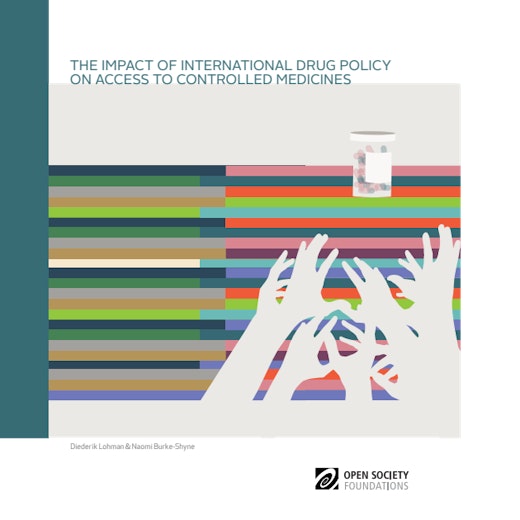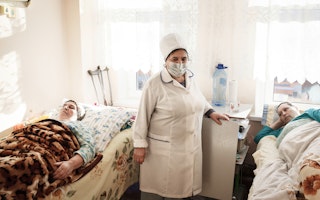In Kenya, Overcoming Drug Fears to Expand Access to Palliative Care
By Zipporah Ali

My brother Harun loved to smile. He lived his life a happy man, right up until his final two weeks, when the excruciating pain of late-stage leukemia overtook him. In the end, so acute was his agony that it prevented him from even touching his children. His smile vanished in those last days; now, to remember it, I need to look at a photograph.
As a young physician in Kenya, I felt helpless to relieve Harun’s pain. I asked his doctor to give him injectable pethidine, the only strong opioid then available at the national referral hospital. But the doctor refused, a not uncommon response in Kenya at the time.
Over 80 percent of the world’s population has no access to opioid pain relief, even though morphine is included on the World Health Organization (WHO) list of essential medicines. I held Harun’s hand as he died, and was haunted long after by anger and guilt.
That anger and guilt ultimately evolved into a desire to help fix the problem. In 1993, I started volunteering at Nairobi Hospice, where I later became the senior medical doctor. My experience with patients at the hospice brought me a deeper understanding of what patients and families go through when faced with such great pain and suffering.
Recognizing that there was a greater need at a national level, in 2007 I set up the Kenya Hospices and Palliative Care Association (KEHPCA). We work with those who take care of patients and families when a cure is no longer possible. Our main activities include education, research, providing technical support, initiating new service centers, advocacy, and fundraising. We believe palliative care should be available and accessible at all levels of care, making it possible for patients to receive it in their homes or in hospitals and clinics.
That the African Union (AU) shares this belief is a testament to how far we’ve come. The AU’s Common African Position on the UN’s Sustainable Development Goals recognizes that the world drug problem requires an “integrated approach to drug supply, demand reduction, and harm reduction strategies, as well as ensuring the availability of controlled substances for medical and scientific use.”
Morphine is one such controlled substance, and because of its legal standing, fear about its use has made it inaccessible in many parts of the world. This fear—along with punitive laws, poverty, stigma, cost, and health care providers’ lack of knowledge and skills—continues to be a barrier to access to pain relief.
But attitudes are changing. In the time since my brother’s death, Kenya has come to recognize palliative care and pain relief as a human right, confirmed in the country’s first-ever National Patients’ Rights Charter [PDF]. In November, Kenya’s ministry of health purchased 50 kilograms of morphine for distribution to hospices and hospitals—enough to ease the needless suffering of thousands of patients.
Although 50 kilograms is well below what is needed, according to WHO calculations of national need, it’s a step in the right direction. In addition, KEHPCA has successfully advocated for more imports of morphine into the country. And we have ensured that palliative care and pain relief are enshrined in multiple national documents, including those affecting people with cancer and HIV/AIDS.
There is an enormous need for services, education, and training. Forty-four million people live in Kenya, and cancer and HIV/AIDS are the leading causes of death. The ministry of health estimates there are 38,000 new cancer patients per year, 27,000 of whom will die within two years of their diagnosis. Over 80 percent of these patients are candidates for palliative care.
Likewise, the current prevalence of HIV/AIDS is 6.8 percent; just as with cancer patients, 80 percent of those with advanced illness require palliative care services. Other noncommunicable diseases (in a now aging population) such as diabetes, hypertension, and cardiac, lung, and neurodegenerative diseases are increasing the demand for palliative care.
This week, leaders, experts, and civil society representatives from around the world are meeting in New York for the UN General Assembly Special Session on the world drug problem (UNGASS). It’s a crucial opportunity to assess and debate global drug policy, and a chance to muster the will, expertise, and compassion to ensure the need for palliative care demand is met.
My brother died at a time when palliative care was a rarity in Kenya. But with each passing day, we move toward a new era—one in which needless suffering is a thing of the past.
The Kenya Hospices and Palliative Care Association is a grantee of the Open Society Foundations.
Zipporah Ali, MD, is executive director of the Kenya Hospices and Palliative Care Association.


